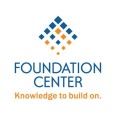‘I live in a rural community where the Tea Party dominates, no new taxes can be passed without a super majority, and government is cutting back on everything. The other day someone asked me how I can help the fire station find money to buy a new fire truck. What do I tell him?’
I was recently asked that question by a librarian at ‘Network Days’, an annual live/virtual gathering of the librarians, non-profit resource centre administrators and community foundation leaders that are the human face of the Foundation Center’s Cooperating Collection Network. In all 50 states and 14 countries around the world, CCs help struggling non-profits, those who want to create non-profits, and people who want to work in non-profits connect with the resources they need. Except when there are no resources to be found.
Despite being president of the Foundation Center, the world’s largest source of information on organized philanthropy, my response to that librarian’s question was pretty feeble. All I could really muster is a few words to the effect that, around the country, there are small, local foundations which, on occasion, are willing to contribute to the purchase of a fire truck, an ambulance, emergency medical equipment and the like. You can find some of them through the Foundation Directory Online or by searching 990-PF tax returns. Most of them don’t have websites.
Another librarian asked me what she could say to the five hundred people who will lose their jobs next year when a factory in town closes. On that one I was able to muster a slightly less feeble answer, in that there are more foundations willing to fund job training, enterprise creation and advocacy than there are foundations willing to contribute to the purchase of a fire truck.
Every day, these librarians ask people, ‘How can I help you?’ And in return, they get questions like these. Of course, they listen, they empathize, and they struggle to come up with good answers. But good answers are increasingly difficult to come by. My job is all about philanthropy, not about business or government. I know foundations are concerned about government continuing to retreat from education, health care, and social services, and that legislators and many others expect philanthropy to pick up the tab. On the face of it, that’s preposterous: the resources of even the largest American foundations are a rounding error in the federal budget. And channeling foundation dollars into basic service provision would kill off the independence, creativity and risk-taking that makes philanthropy so valuable to society.
But as much as I would love to see the fire truck question put to President Obama and Governor Romney in one of the debates, that ain’t gonna happen. No matter which candidate wins, he will be faced with deciding what government will not fund, as an over-leveraged economy struggles through an anemic recovery. Meanwhile, the private sector will continue to shutter factories, locate them overseas, or create new ones at home that are heavy on technology but light on workers.
So that leaves philanthropy. The good news is that philanthropy, in the US and around the globe, is a growth industry. The world economy is manufacturing billionaires at a record pace, and thanks to efforts like the Giving Pledge, more of them are embracing the notion of giving back. But those of us who work in philanthropy need to do more than just wring our hands over concerns that government may start telling foundations what to do with their money.
What, you ask?
First, foundations can fund more advocacy. Great Recession notwithstanding, there is still a lot of money sloshing around the public sector, and every year some of it goes to pork and some of it flows to organizations and causes championed by special interests. As Bill Clinton was fond of saying, politics is a contact sport, and advocates interested in public support for vital community services need resources to stay in the game.
Second, foundations can support and even lead efforts to foster broad public dialogue about how best to piece together a social safety net that works and is sustainable. Until the paralyzing rhetorical divide between the ideologies of ‘big government’ and the ‘magic of the market’ is bridged, families and communities will continue to crash through growing gaps in the frayed social safety net.
Third, foundations can support sustained social innovation. Now, innovation alone will not solve all the large-scale societal challenges we face, but it has the potential to create breakthroughs that lead to entirely new and less expensive ways of addressing those challenges.
Fourth, foundations can be more forthcoming with data and information about the good work they do. If nothing else, this will make it much easier for a rural librarian in Idaho or Arkansas or Wyoming to help the local volunteer fire department locate resources to buy that fire truck. And it will also make it easier for foundations to see what others are doing so that there can be a lot less duplication than exists today and a bit more impact.
Fifth, foundations can support local libraries. Libraries have been the information backbone of this country for more than a hundred years, and librarians, the original data scientists, take their responsibilities seriously. America is filled with people who still believe that hard work, optimism, and cooperation can save and improve their communities. When librarians have the courage to ask them, ‘How can I help you?’ we need to be sure they have good answers at hand.
Bradford Smith is president of the Foundation Center. This article was first published on the Foundation Center’s PND blog





Comments (0)